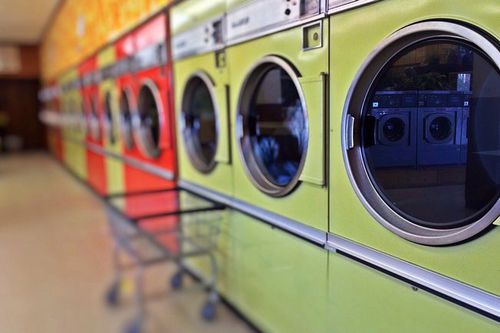January 16, 2018
Washable, Ultra-thin Organic Solar Cell Developed by Japanese Scientists
Keywords: Environmental Technology Renewable Energy

Image by Wokandapix.
A group of scientists from RIKEN, a comprehensive chemical institute in Japan, the Japan Science and Technology Agency (JST), and the University of Tokyo announced on September 19, 2017, that they have successfully developed a new type of ultra-thin organic photovoltaic device equipped with excellent elasticity and water resistance, allowing it to be attached to clothes or put in the wash.
Photovoltaic devices that can be integrated into fabric may play an important role as power sources for wearable sensors that continuously monitor vital parameters, including blood pressure, body temperature, heart rate and electrocardiography. For such applications, however, the product must satisfy the following properties; long-term environmental stability (stability in both air and water), high power conversion efficiency (efficiency of converting sunlight to electricity), and mechanical flexibility including resistance to deformation. Conventional photovoltaics, however, have not been able to attain all of the desired properties.
In a joint study, the researchers created extremely thin and flexible photovoltaic cells by depositing a semiconductor polymer material called PNTz4T onto a 1-μm(1/1000 mm)-thick parylene film. PNTz4T had been developed by RIKEN and has excellent environmental stability and power conversion efficiency. The ultra-thin cells were then covered on both sides with an elastomer, a rubber-like material that had been stretched before being applied. The elastomer allows light to enter but prevents water and air from leaking into the cells, making it possible to create a 3-μm-thick photovoltaic device with enhanced elasticity and water resistance.
The newly developed device was subjected to a variety of tests to examine its properties. The results showed that the device had high energy efficiency of 7.9 percent, almost double that of previously reported solar cells (4.2 percent). In the test for water resistance, the device was soaked in water for two hours, but its energy efficiency decreased by only five percent from the original efficiency. The robustness of the device was also examined, via compressing it by almost half. Though the device was partly deformed by the compression, it continued to stably supply power, demonstrating its high mechanical flexibility. Scientists expect that these washable, ultra-thin organic solar cells will open new avenues for use in long-term and stable power supply systems for wearable sensors.
Related
"JFS Newsletter"
Related
"Popular Articles"
- New Nano-Bubble Technology May Help Dissolve Sludge and Improve Water Quality
- Japanese Firm Begins Development of Tidal Power Generation System
- Small Hydropower Generation System Developed for Use in Seawater, Weight Cut by Half
- Constructed Wetland Facility Established by Japanese University Purifies Livestock Farming Drainage
- Toyota CRDL Succeeds in World's First Artificial Photosynthesis Using only Water and CO2


